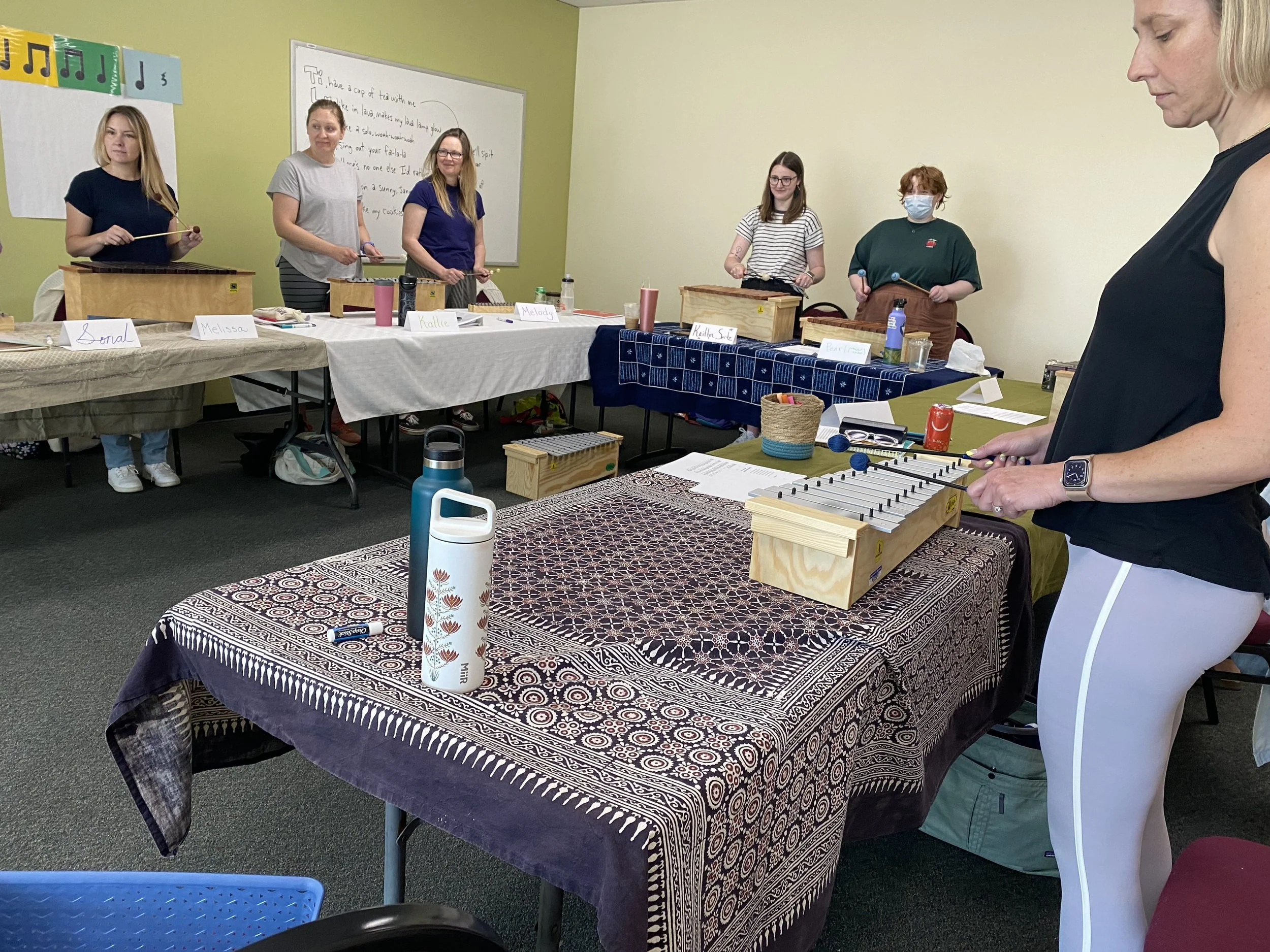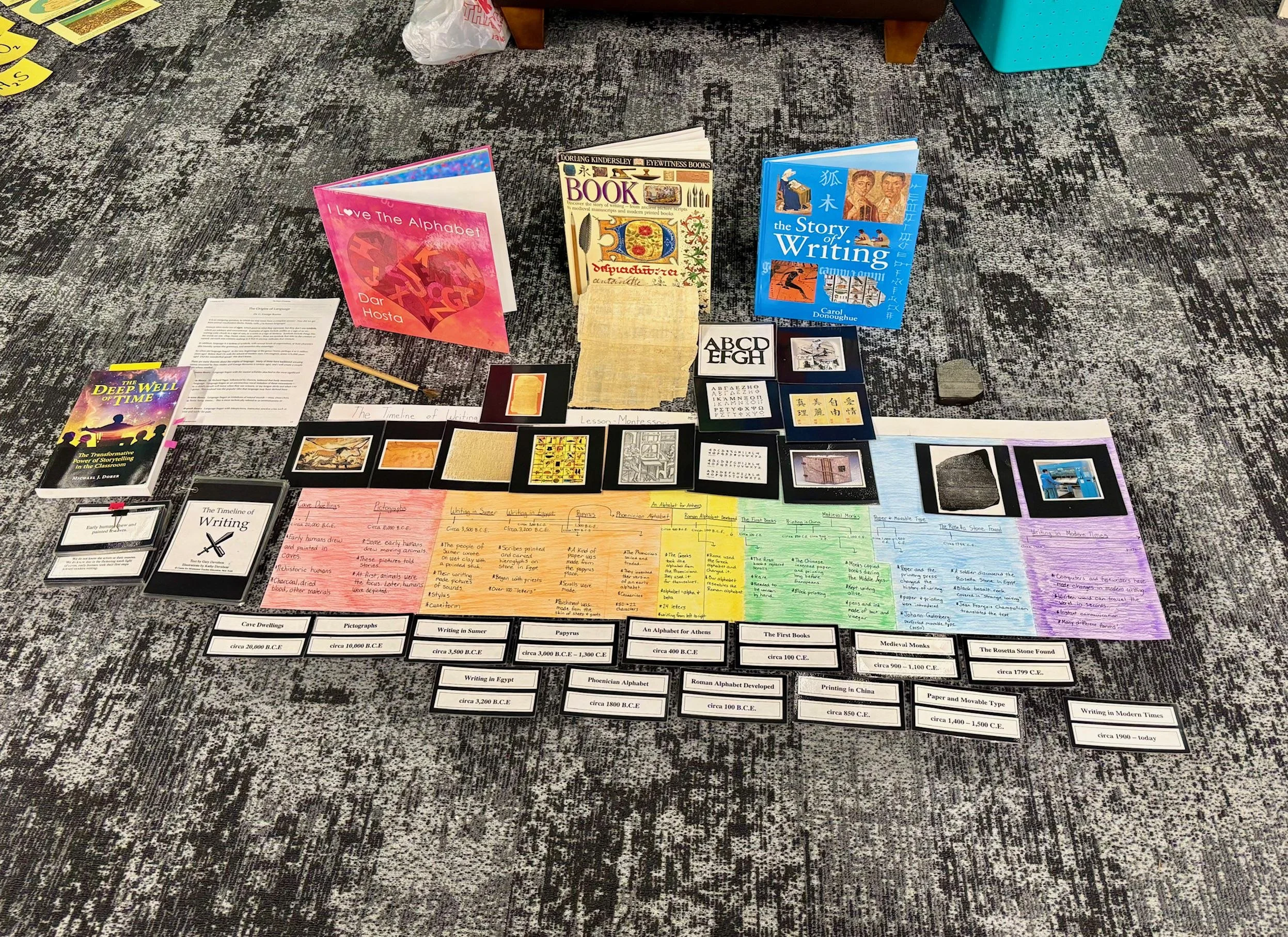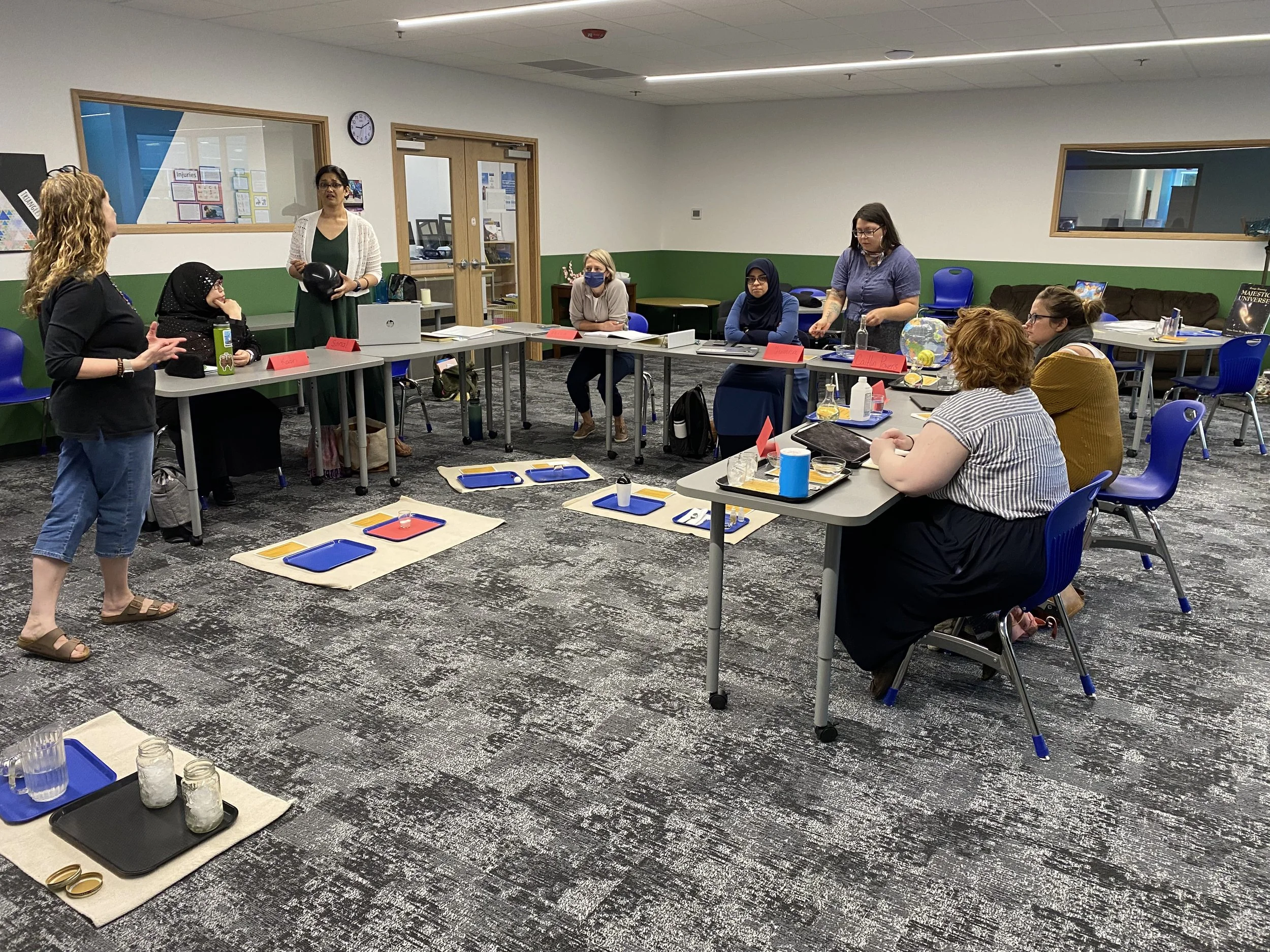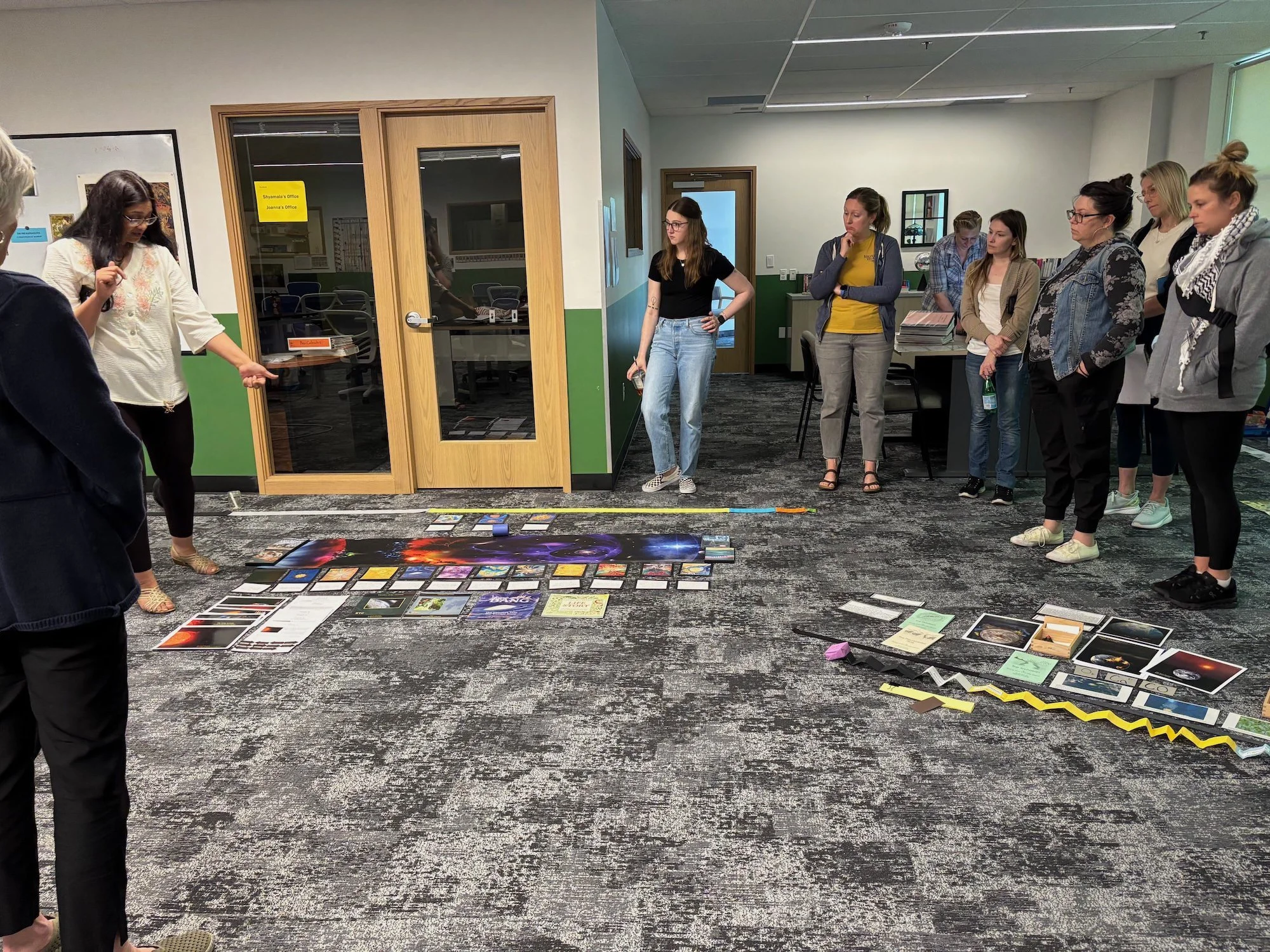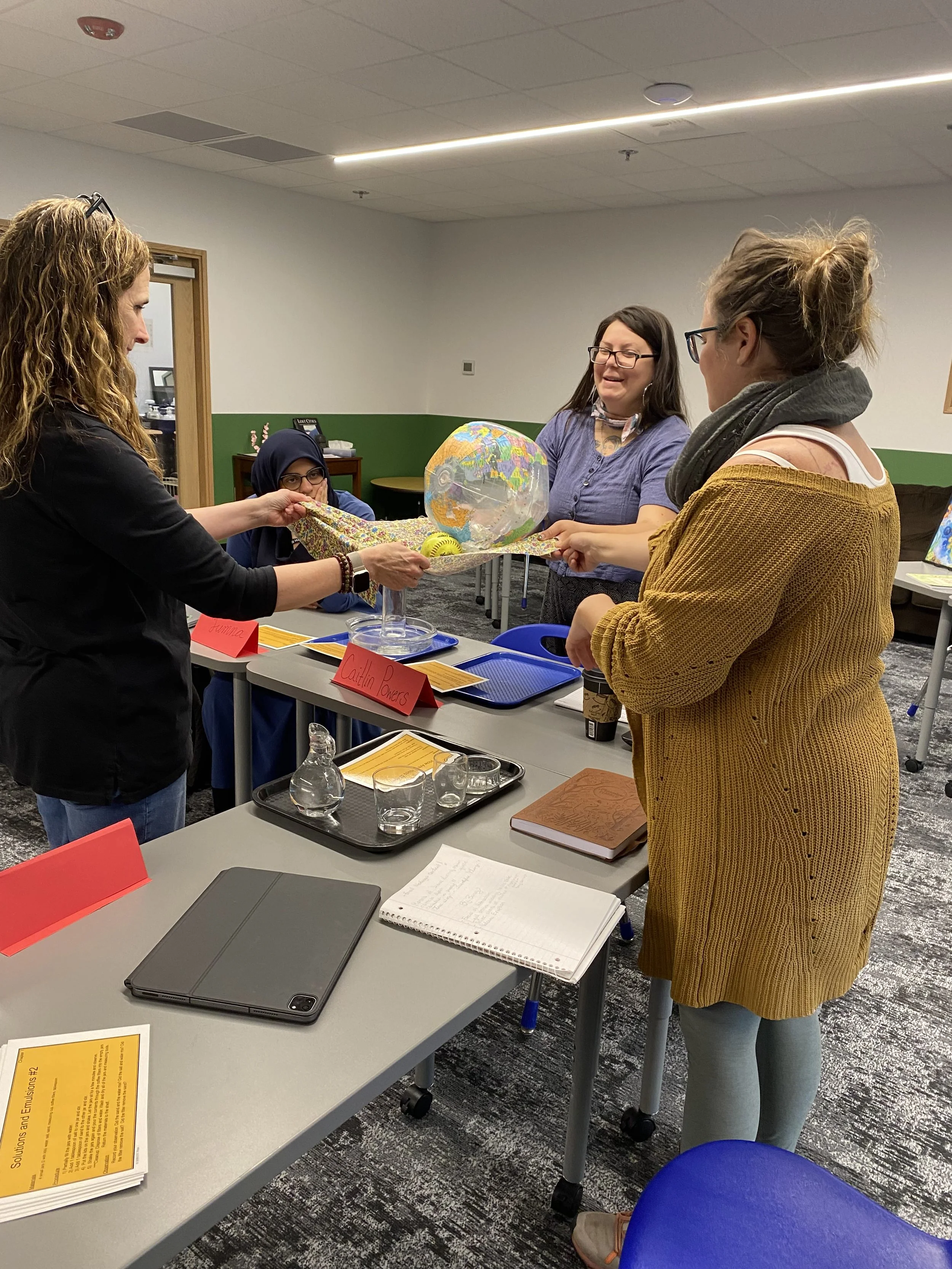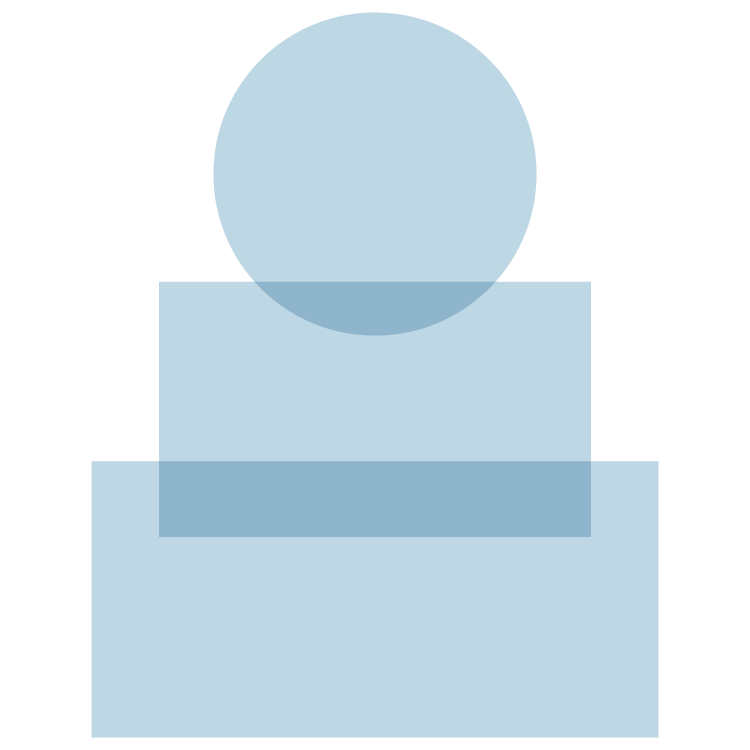Elementary I Program
Give children the keys to the universe
The Montessori Elementary curriculum offers children a remarkable framework for constructing their understanding of the interrelationships of all aspects of the living and nonliving world. Through storytelling, experiments, and a rich collection of hands-on activities, children have the opportunity to go deeper and deeper in a series of lessons that spiral from simple to complex in every curriculum area.
Upon satisfactorily completing all academic and practicum requirements, you will be awarded a MACTE accredited, AMS-affiliated Elementary I credential. The Elementary I course gives you the knowledge and skills required to see these connections in a new way and to prepare and lead an authentic Montessori environment for children ages six to nine.
Academic Phase:
The academic portion of the Elementary I course includes classes in Philosophy; Curriculum Strategies; Classroom Leadership; Language; Math; History; Geography; Life Science; Physical Science; Music; Movement; and Art. For course, descriptions see MEIPN Student Catalog.
The academic phase starts in June and continues for one year.
It requires 356 contact hours of instruction. This does not include the required Child Development or the Early Childhood Overview.
174.25 hours of this content is delivered online, and 181.75 hours will be delivered in-person on the MEIPN campus or via Zoom meetings.
Early Childhood Overview: Those without an Early Childhood credential must take the Early Childhood overview course. This online course takes a month to complete and is offered at different times throughout the year. Contact the course coordinator for current offerings.
Child Development Course: The course must cover physical, intellectual, social, and emotional development from the neonatal period through at least adolescence. There are two ways this requirement is met.
A student has previously taken this course in college and passed with a grade of B or higher. They then complete the course “Child Development Update” as part of the academic phase.
Students that have not met this requirement upon acceptance will be enrolled in the MEIPN Child Development course with an additional fee.

When asked what a student considers to be the strength of this training program they said: “Wealth of information, very up to date information, and supportive instructors and supervisors. I feel very prepared!”
– MEIPN grad
Practicum Phase:
The practicum experience allows you to observe a good model of the Montessori method in action and to practice what has been presented in class. Ideally, you will be working under the supervision of an experienced, credentialed Montessori teacher. This is called a supervised practicum. In special cases, you may be working as the lead teacher in the classroom. This will extend your internship up to two academic years and is called a self-directed practicum.
Practicum begins after the start of the academic phase
The practicum requires approximately six hours per day and five days per week of experience in an approved Montessori elementary classroom for an entire school year of nine months.
This totals a minimum of 1080 hours of class preparation work, teaching, cleanup, meetings, parent conferences, etc.
Experience gained before undertaking the academic portion cannot be counted towards your practicum.
Student-teachers choose their practicum site
The site must comply with the requirements listed on the Practicum Site Agreement and the Supervising Teacher Agreement, so do review those requirements before your search.
Schools that have not hosted a MEIPN intern in the past need to be pre-approved by MEIPN. See the MEIPN Student Catalog for more information on the Practicum and contact a coordinator for suggestions on how to go about this.
Program staff members are happy to advise.
